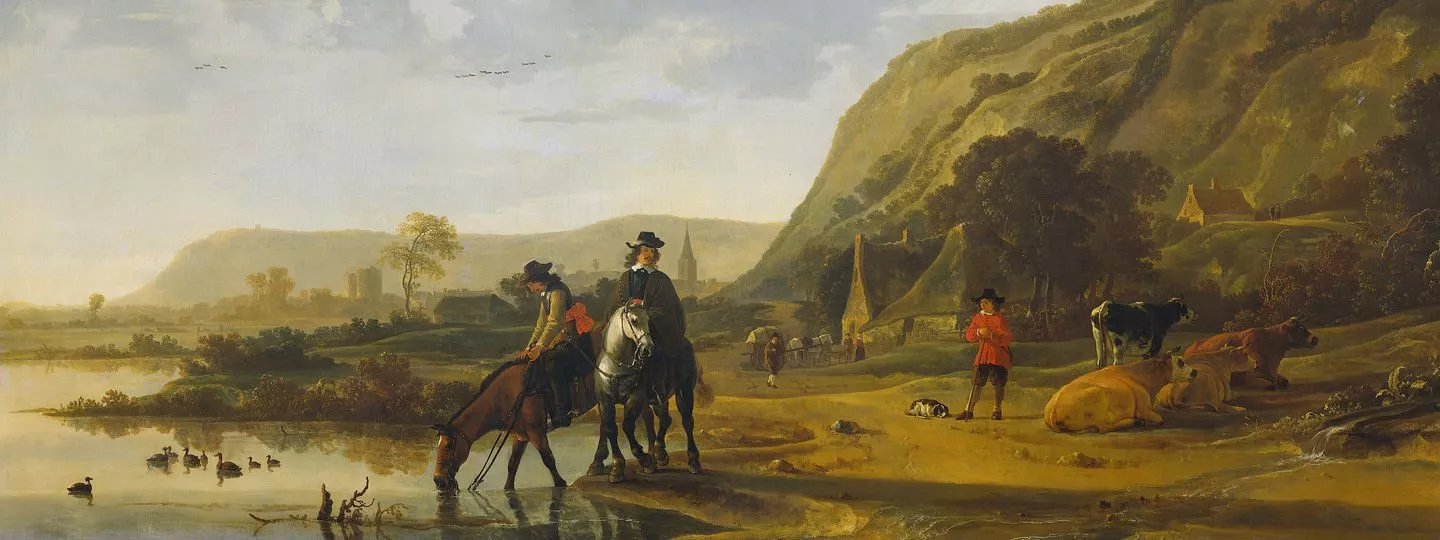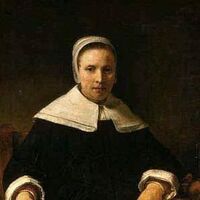
Anne Bradstreet
Anne Bradstreet was born in Northampton, England, in the year 1612, daughter of Thomas Dudley and Dorothy Yorke; Dudley, who had been a leader of volunteer soldiers in the English Reformation and Elizabethan Settlement, was then a steward to the Earl of Lincoln; Dorothy was a gentlewoman of noble heritage and she was also well educated.
Anne Bradstreet was born in Northampton, England, in the year 1612, daughter of Thomas Dudley and Dorothy Yorke; Dudley, who had been a leader of volunteer soldiers in the English Reformation and Elizabethan Settlement, was then a steward to the Earl of Lincoln; Dorothy was a gentlewoman of noble heritage and she was also well educated.
At the age of 16, Anne was married to Simon Bradstreet, a 25 year old assistant in the Massachusetts Bay Company and the son of a Puritan minister, who had been in the care of the Dudleys since the death of his father.
Anne and her family emigrated to America in 1630 on the Arabella, one of the first ships to bring Puritans to New England in hopes of setting up plantation colonies. The journey was difficult; many perished during the three month journey, unable to cope with the harsh climate and poor living conditions, as sea squalls rocked the vessel, and scurvy brought on by malnutrition claimed their lives. Anne, who was a well educated girl, tutored in history, several languages and literature, was ill prepared for such rigorous travel, and would find the journey very difficult.
Their trials and tribulations did not end upon their arrival, though, and many of those who had survived the journey, either died shortly thereafter, or elected to return to England, deciding they had suffered through enough. Thomas Dudley and his friend John Winthrop made up the Boston settlement's government; Winthrop was Governor, Dudley Deputy-Governor and Bradstreet Chief-Administrator.
The colonists' fight for survival had become daily routine, and the climate, lack of food, and primitive living arrangements made it very difficult for Anne to adapt. She turned inwards and let her faith and imagination guide her through the most difficult moments; images of better days back in England, and the belief that God had not abandoned them helped her survive the hardships of the colony.
Having previously been afflicted with smallpox, Anne would once again fall prey to illness as paralysis took over her joints; surprisingly, she did not let her predicament dim her passion for living, and she and her husband managed to make a home for themselves, and raise a family. Despite her poor health, she had eight children, and loved them dearly. Simon eventually came to prosper in the new land, and for a while it seemed things would not be so bad.
Tragedy struck once more, when one night the Bradstreet home was engulfed in flames; a devastating fire which left the family homeless and devoid of personal belongings. It did not take too long for them to get back on their feet, thanks to their hard work, and to Simon's social standing in the community.
While Anne and her husband were very much in love, Simon's political duties kept him traveling to various colonies on diplomatic errands, so Anne would spend her lonely days and nights reading from her father's vast collection of books, and educating her children. The reading would not only keep her from being lonely, but she also learned a great deal about religion, science, history, the arts, and medicine; most of all, reading helped her cope with life in New England.
Anne Bradstreet was especially fond of poetry, which she had begun to write herself; her works were kept private though, as it was frowned upon for women to pursue intellectual enlightenment, let alone create and air their views and opinions. She wrote for herself, her family, and close circle of educated friends, and did not intend on publication. One of her closest friends, Anne Hutchinson, who was also a religious and educated woman had made the mistake of airing her views publicly, and was banished from her community.
However, Anne's work would not remained unnoticed... Her brother-in-law, John Woodbridge, had secretly copied Anne's work, and would later bring it to England to have it published, albeit without her permission. Woodbridge even admitted to it in the preface of her first collection, "The Tenth Muse Lately Sprung Up in America, By a Gentlewoman of Those Parts", which was published in 1650. The book did fairly well in England, and was to be the last of her poetry to be published during her lifetime. All her other poems were published posthumously.
Anne Bradstreet's poetry was mostly based on her life experience, and her love for her husband and family. One of the most interesting aspects of her work is the context in which she wrote; an atmosphere where the search for knowledge was frowned upon as being against God's will, and where women were relegated to traditional roles. Yet, we cAnneot help but feel the love she had for both God, and her husband, and her intense devotion to both, and to her family, despite the fact that she clearly valued knowledge and intellect, and was a free thinker, who could even be considered an early feminist.
By Anne Bradstreet's health was slowly failing; she had been through many ailments, and was now afflicted with tuberculosis. Shortly after contracting the disease, she lost her daughter Dorothy to illness as well, but her will was strong, and perhaps, as a reflection of her own acceptance of death, she found solace in thinking of her daughter in a better place.
Soon thereafter, Anne Bradstreet's long and difficult battle with illness would be at an end, and she passed away on September 16, 1672, in Andover, Massachusetts, at the age 60.


